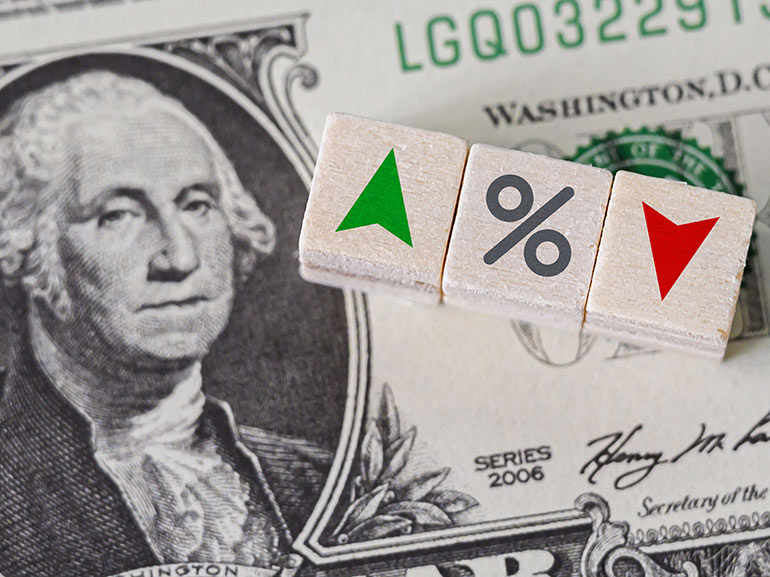What Are Interest Rates and How Do They Work?
Given the overarching inflationary economy around the world, it is safe to assume that whether on the news or on social media or from your financially-enthusiastic friend, one way or another, you might’ve heard of Interest Rates. Specifically, hiking Interest Rates to perhaps combat inflation and a possible recession. So what are Interest Rates, how do Interest Rates work, why do Interest Rates matter, what are the different types of Interest Rates, and how do Interest Rates affect inflation?

What Is an Interest Rate?
An Interest Rate can either be the percentage you’ve earned from the money you saved or you owe your borrower. For example, if you take out a loan from the bank, then the interest rate is the percentage of the money you need to pay the bank in return for it granting you the loan. On the flip side, if you save up money in a savings account, the interest rate is the percentage you’ve earned in response to saving money. This is perhaps why many banks use Interest Rates to incentivize customers to open savings accounts.
How Do Interest Rates Work?
Since an interest rate is a percentage of the amount of money saved or borrowed, the overall price of the loan or saving becomes affected by it. Accordingly, higher Interest Rates mean you earn more money from your savings. On the other hand, higher Interest Rates mean you need to pay more money to your lender. (Source:Bank of England)
What Are the Different Types of Interest Rates?
Interest Rates come in different types and some of which are Fixed Interest, Variable Interest, and Annual Percentage Rate (APR). So what is a Fixed Interest Rate? Fixed Interest is considered one of the most common types of Interest Rates. This type of interest usually refers to the amount of money a borrower has to repay his lender in return for the loan. As the name entails, this type of interest is fixed, i.e. predetermined and stable, and is usually decided on before the inception of the agreement between the lender and the borrower.
When talking about Variable Interest Rates vs. Fixed Interest Rates, as opposed to the latter, which are stable in value, Variable Interest Rates, fluctuate over time based on periodic changes in an underlying benchmark interest rate or index. This means that if the underlying index or interest rate depreciates, then the amount of money you owe your lender decreases. In a similar vein, if the underlying index or interest rate rises then the amount of money you owe your lender increases.
Lastly, the Annual Percentage Rate (APR) is the amount of interest you pay on a yearly basis in return for borrowing money. In addition to the interest, the APR includes the fees one has to pay in order to borrow money. Thus, the higher the APR, the more you'll pay over time. Moreover, this type of interest is popular among credit card companies.
Why Do Interest Rates Matter and How do Interest Rates Affect Inflation?
The main significance of Interest Rates lies in the fact that they directly impact inflation, deflation, and recession. In times of high inflation, like those recently observed around the globe, central banks raise Interest Rates in order to combat it.
Additionally, interest rates are important because not only do they affect borrowing costs and financial decision-making, but they also shape the economy in that Interest Rates alter the formation of labor and resources. In other words, industries’ growth, shrinkage, and financial deployment are affected by Interest Rates.
Why Are Interest Rates Going Up?
As mentioned above, Interest Rates play a key role in the attempt of taming inflation. Since in the past few months, the overarching situation in the economies around the globe has been clearly characterized by inflationary pressure, central banks like the US Federal Reserve (FOMC) and the Bank of England (BoE) have made it their mission to raise rates in order to stabilize the economy. Accordingly, on July 27th, the FOMC concluded its fourth consecutive meeting by voting to raise US Interest Rates by 0.75%; their highest level since 1994. Similarly, on the 4th of August, the BoE voted to make its biggest rate hike in 27 years by raising UK Interest Rates to 1.75% to tame inflation. Whereas on the 10th of August, the latest Consumer Price Index (CPI), a key indicator of inflation, showed a lower-than-expected rise of 8.5 for consumer prices in July, many analysts expect the Fed to stick with its hawkishness until inflation is completely controlled. Still, it remains to be seen whether inflation will indeed be controlled or if there will be a change in Interest Rates in the near future.
